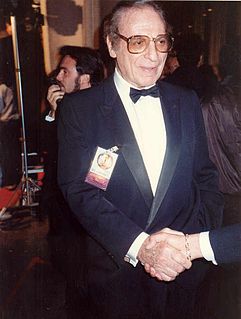A Quote by Barry Gardiner
The pluralist society must be pragmatic. It does not say that 'God is dead.' It does not say that 'God is alive.' It says if we are to answer the question of how we can live together then we must remain agnostic on all such matters - at least so far as our civic association is structured.
Related Quotes
But in the end, science does not provide the answers most of us require. Its story of our origins and of our end is, to say the least, unsatisfactory. To the question, "How did it all begin?", science answers, "Probably by an accident." To the question, "How will it all end?", science answers, "Probably by an accident." And to many people, the accidental life is not worth living. Moreover, the science-god has no answer to the question, "Why are we here?" and, to the question, "What moral instructions do you give us?", the science-god maintains silence.
Today our (Society of Jesus) prime educational objective must be to form men (and women) for others; men (and women) who will live not for themselves but for God and his Christ - for the God-man who lived and died for all the world; men (and women) who cannot even conceive of love of God which does not include love for the least of their neighbors; men (and women) completely convinced that love of God which does not issue in justice for others is a farce.
For me, in those days, the great question was: Does God exist? Or doesn't God exist? Can we, by an attitude of faith, attain to a sense of community and a better world? Or, if God doesn't exist, what do we do then? What does our world look like then? In none of this was there the least political colour.
The atheist does not say 'there is no God,' but he says 'I know not what you mean by God; I am without idea of God'; the word 'God' is to me a sound conveying no clear or distinct affirmation. ... The Bible God I deny; the Christian God I disbelieve in; but I am not rash enough to say there is no God as long as you tell me you are unprepared to define God to me.
But once a dead God, always a dead God, even resurrected. The Son must have the taste of death forever in his mouth. The Trinity must be tainted by it; there must be a certain stench at the right hand of God the Father. The horror must be real. Why would God wish that upon Himself? Why not leave death to mortals? Why make dirty what is beautiful, spoil what is perfect? -- Love. That was his answer.
I believe that the most urgent need of parents today is to instill in our children a moral vision: what does it mean to be a good person, an excellent neighbor, a compassionate heart? What does it mean to say that God exits, that He loves us and He cares for us? What does it mean to love and forgive each other? Parents and caregivers of children must play a primary role in returning our society to a healthy sense of the sacred. We must commit to feeding our children’s souls in the same way we commit to feeding their bodies.
People are invariably surprised to hear me say I am both an atheist and an agnostic, as if this somehow weakens my certainty. I usually reply with a question like, “Well, are you a Republican or an American?” The two words serve different concepts and are not mutually exclusive. Agnosticism addresses knowledge; atheism addresses belief. The agnostic says, “I don't have a knowledge that God exists.” The atheist says, “I don't have a belief that God exists.” You can say both things at the same time. Some agnostics are atheistic and some are theistic.
Then they began to say: 'Yes, but how can we know what is God's Word, and what is right or wrong? We must learn this from the Pope and the councils.' Very well then, let them conclude and say what they please, yet I will reply, you cannot put your confidence in that nor thus satisfy your conscience, for you must determine this matter yourself, for your very life depends upon it. Therefore God must speak to your heart: This is God's Word; otherwise you are undecided.
We must see the face of the Lord .... There are things that God says to me that I know must take place. It doesn't matter what people say. I have been face to face with some of the most trying moments of men's lives when it meant so much to me if I kept the vision, and if I held fast to that which God had said. A man must be in an immovable condition. The voice of God must mean to him more than what he sees, feels, or what people say.
Today the logic goes something like this: 'Calling a ruler Son of God is out of style. No one really does that nowadays. We can support a president while also worshiping Jesus as the Son of God.' But how is this possible? For one says that we must love our enemies, and the other says we must kill them; one promotes the economics of competition, while the other admonishes the forgiveness of debts. To which do we pledge allegiance?
When [the saints] perform actions to God, then the soul says: 'Oh! that I could do what pleases God!' When they come to suffer any cross: 'Oh, that what God does might please me!' I labour to do what pleases God, and I labour that what God does shall please me: here is a Christian indeed, who shall endeavour both these. It is but one side of a Christian to endeavour to do what pleases God; you must as well endeavour to be pleased with what God does, and so you will come to be a complete Christian when you can do both, and that is the first thing in the excellence of this grace of contentment.
In Sufi terms the crushing of the ego is called Nafs Kushi. And how do we crush it? We crush it by sometimes taking ourselves to task. When the self says, 'O no, I must not be treated like this,' then we say, 'What does it matter?' When the self says, 'He ought to have done this, she ought to have said that,' we say, 'What does it matter, either this way or that way? Every person is what he is; you cannot change him, but you can change yourself.' That is the crushing. ... It is only in this way that we can crush our ego.

































